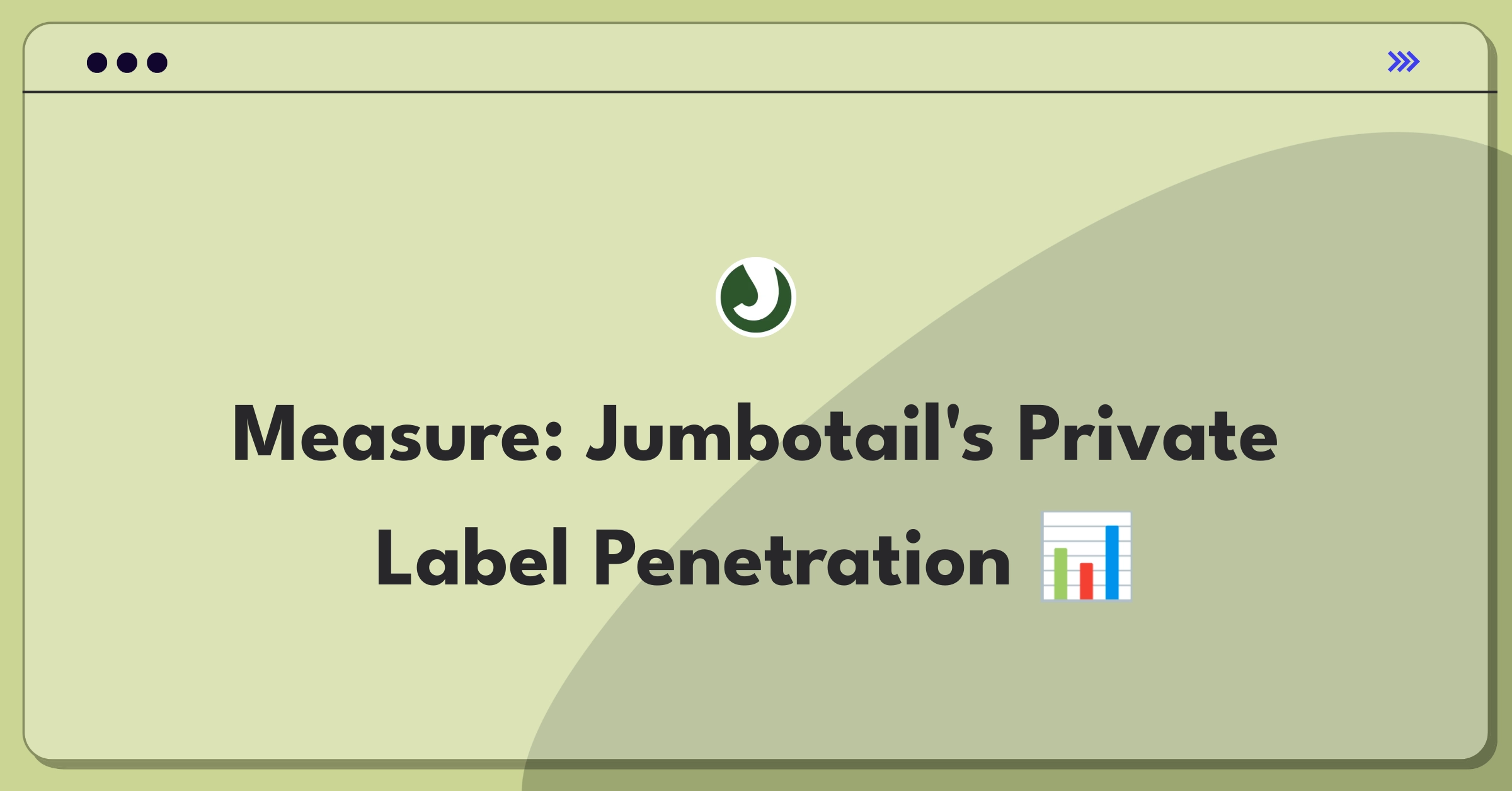Introduction
Defining the success of Jumbotail's private label grocery products requires a comprehensive approach that considers multiple stakeholders and metrics. To address this product success metrics challenge effectively, I'll follow a structured framework covering core metrics, supporting indicators, and risk factors while considering all key stakeholders.
Framework Overview
I'll follow a simple success metrics framework covering product context, success metrics hierarchy.
Step 1
Product Context
Jumbotail's private label grocery products are a range of food and household items sold under Jumbotail's own brand name. These products are typically manufactured by third-party suppliers but marketed and sold exclusively through Jumbotail's platform.
Key stakeholders include:
- Customers (small retailers)
- Jumbotail (the company)
- Manufacturers/suppliers
- Competitors (other wholesalers and private label brands)
User flow:
- Retailers browse Jumbotail's catalog, including private label options
- They compare prices, quality, and availability with other brands
- Place orders through Jumbotail's platform
- Receive deliveries and stock products in their stores
- Sell to end consumers and potentially reorder based on performance
Jumbotail's private label strategy aligns with its broader mission to transform food and grocery retail in India. By offering quality products at competitive prices, Jumbotail aims to increase retailer loyalty and improve margins.
Compared to competitors like Metro Cash & Carry or Walmart's Best Price, Jumbotail's focus on digital-first operations and last-mile delivery gives it a unique advantage in serving small retailers.
Product Lifecycle Stage: Growth. Private label products are gaining traction but still have significant room for expansion in terms of product range and market penetration.
Subscribe to access the full answer
Monthly Plan
The perfect plan for PMs who are in the final leg of their interview preparation
$66.00 /month
- Access to 8,000+ PM Questions
- 10 AI resume reviews credits
- Access to company guides
- Basic email support
- Access to community Q&A
Yearly Plan
The ultimate plan for aspiring PMs, SPMs and those preparing for big-tech
- Everything in monthly plan
- Priority queue for AI resume review
- Monthly/Weekly newsletters
- Access to premium features
- Priority response to requested question


.png)